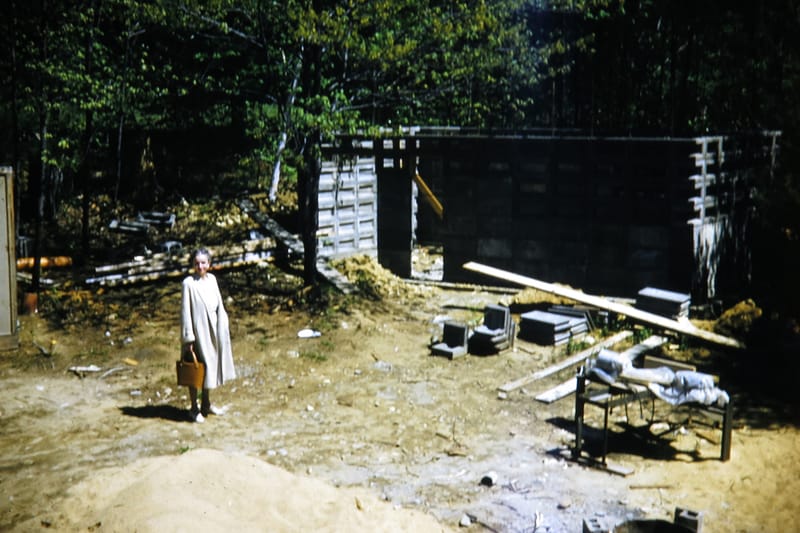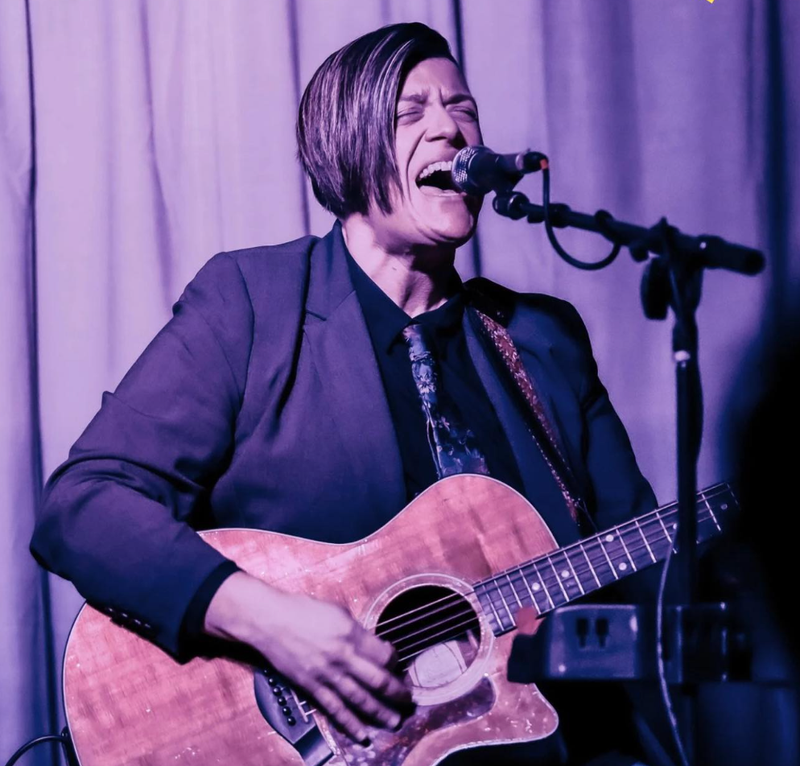Writing about writing: ‘War Fronts Home Fires’ by Joseph W. McQuaid
Author and newsman Joe McQuaid has plunged into this high-stakes endeavor at least twice – the first time in 2021 when he wrote a book for his family about his late wife Signe Anderson McQuaid, and then last year when he published “War Fronts Home Fires: A WWII correspondent’s remarkable coverage, h
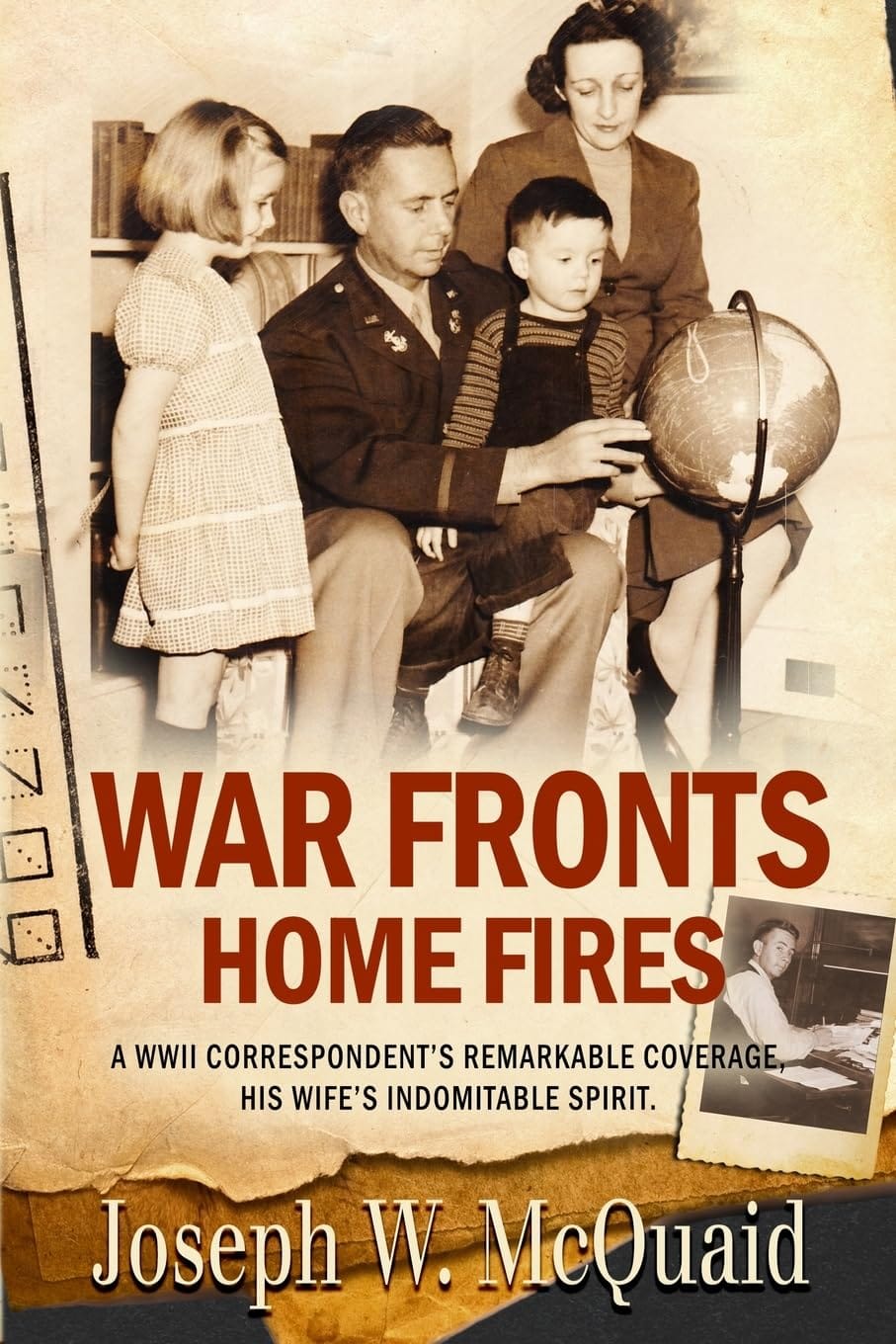
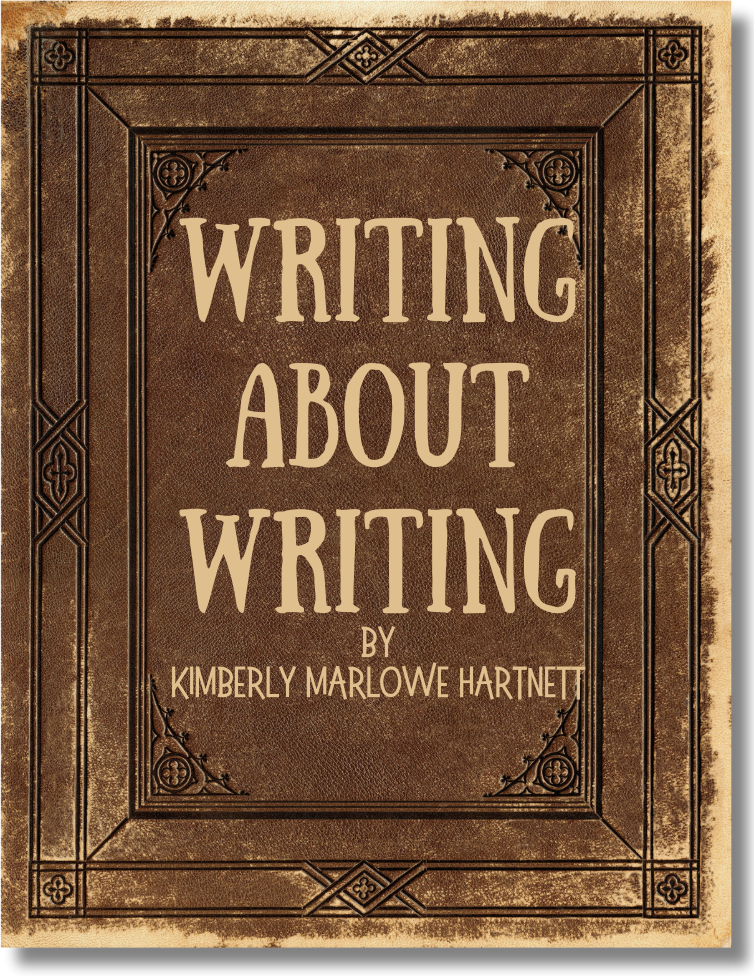
Writing biography is not for the faint of heart.
To do it well, the writer invites their subject to move in, lock, stock, and life secrets, never dreaming how long this guest will stay and how much space they will take up. Among biographers there is an even more intrepid type who insists on upping the ante – they are the ones who write about someone they love.
Author and newsman Joe McQuaid has plunged into this high-stakes endeavor at least twice – the first time in 2021 when he wrote a book for his family about his late wife Signe Anderson McQuaid, and then last year when he published “War Fronts Home Fires: A WWII correspondent’s remarkable coverage, his wife’s Indomitable spirit,” (IngramSpark, 2023). This book is about his war-correspondent father, Bernard John “B.J.” McQuaid, and his mother, Margaret “Peg” Griffin McQuaid, who did the heavy lifting back home in Candia with their children.
For Joe, writing about people and their place in history is not an academic pursuit, but a trade taken up as he followed his father into the newspaper business, ultimately serving as publisher (now retired) and editor-at-large of today’s New Hampshire Union Leader. He has also published a biography of that newspaper’s most famous character, “William Loeb and His Times: Provocative Publisher, Private Paradox,” Plaidswede Publishing, 2022) and a memoir, “Cog Days: A Boy’s Life and One Tragic Summer on Mt. Washington,” (Plaidswede Publishing, 2017).
All four books share common ground: They rely on painstaking archival work, squinting over a lot of crumbling newspaper clips, retrieving piles of dusty letters and photographs, as well as mining official records and carrying out original interviews. This work is where my interest lies. Don’t get me wrong …I’m delighted (full disclosure time) that my friend of more-than-three-decades has written four well-received books. But as a teacher and writer of biography and an admitted freak for archival research, I’m particularly grateful for the examples showing how this digging is done.
I draw from “War Fronts Home Fires” when I coach adults who are writing biography and memoir, as an example of research techniques as well as a you-can-do-this boost when the students get overwhelmed. I remind them that this author spent much of his early life getting to know his subject, followed by years researching and writing the book. This meant living, more recently, in close quarters with a lot of ghosts, especially his famously cantankerous and driven father who died in 1976 at age 67, hastened off by diabetes, alcohol, and ailments suffered during the war.
I’ve been pleased to observe the ongoing interest in this book – it isn’t uncommon for a biography that took years to come together to make a splash and then fade. But in this case, veterans and history buffs (including some impressively knowledgeable young folks) keep turning up at Joe’s talks and asking good questions.
The book is built of cogent slices of WWII history and well-drawn family history that focuses on the McQuaid clan, yet also paints a realistic portrait of common home-front sacrifices.
In 1942, at age 34 and already a father of two of his eventual five children, B.J. could have avoided going to war. His wrestling with the decision is captured in a wonderful letter in which he dissects his doubts. It is a sharp depiction of what soldiers have faced through the ages. “There are moments when I feel like calling all bets off and slinking back to South Road,” B.J. wrote to Peg from an assignment in Chicago. “I can’t see any other [decision] which would permit me to look myself in the eye or – what’s much more important – feel deserving of your good opinion.”
Ultimately, B.J. went off to war from 1942 into 1945, lugging his “portable” manual typewriter and filing hundreds of stories for the respected Chicago Daily News Foreign Service (CDN) from the Aleutian Islands and the Pacific and European theaters. CDN reached upwards of 10 million newspaper readers and radio listeners around the globe. The stories B.J. filed are the backbone of this book, made more relatable by excerpts from letters to and from wife Peg, and placed in context by historical scene-setting.
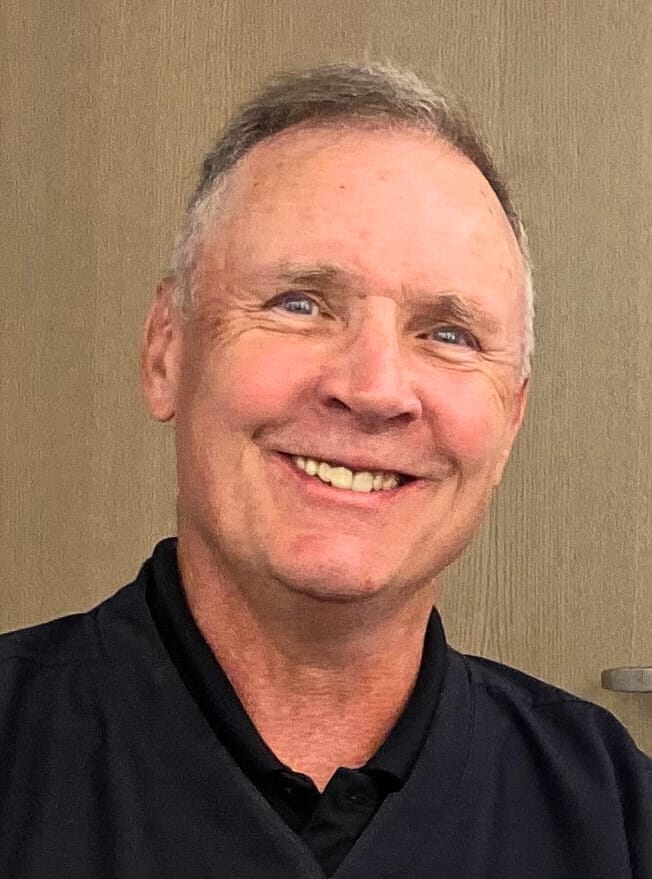
Biographies often have roots in the author’s childhood fascinations. This one definitely does. Joe grew up in the 1950s and ‘60s, listening to B.J. hold forth on his wartime life, and this very-late-night routine (accompanied by the older man’s bottle, glass, and ever-present cigarettes) fostered the author’s love of history. (“As a kid I pictured World War II taking place entirely at night,” Joe recalls.) Nagging awareness of an unexplored trunk of his parents’ letters and bound volumes of wartime newspaper stories hovered in the back of Joe’s mind for years. As steeped as he was in the era’s history and his father’s stories, he was still surprised by much of what he turned up when he dug into the research for this book.
“I never realized how much danger B.J. was in,” he says now. “I have great admiration for my father and the other correspondents who were in the field and at the front lines all day and night, then writing, and then having to wait in line to run their work through the government censors before it could be sent by military teletype. Every step of the way, this was hard stuff.”
Every wartime biography has accounts of close calls, and B.J. had plenty. He didn’t talk much about those moments back at home, and when he reported them, they were stated without much fanfare, to wit: “I made a couple bombing trips to Kiska [an island in the Aleutians], both at low altitudes and the second time we got shot up pretty bad, but I myself wasn’t hit.”
Or, as he wrote after D-Day Plus-One in 1944 at Utah Beach, when he described what happened to a ship’s crew as they hit a mine. The victims above decks disappeared so quickly, B.J., wrote, that “from a small boat only a few hundred feet away, you do not see them at all.” Then there was a chilling story reported by another writer, describing an uneasy night he and B.J. spent in a seemingly abandoned hotel in Montargis, France, only to discover later that German troops had been sleeping in the same building.
There were moments of humor, too – that kind of stuff that sustains folks who are walking the knife-edge of danger. Joe especially likes to tell listeners at his talks that B.J. once was saved from a field of landmines by behaving in a way that was sharply at odds with that of McQuaid-family males – that is, he stopped to ask directions. A host of great one-liners also came home with B.J., many of which still come in handy. (My personal favorite shared by Joe is one I also remember my mother bandying about with great gusto: “He couldn’t pour piss out of a boot if the instructions were written on the heel.”)
Crafting biography about a loved one has its own odd timeline. One is never fully done. There is always more that could be said. And gaining new insights about long-departed parents, of course, means adding to the list of regrets about things unasked when one had the chance.
When Joe has talked to groups of veterans in the region or at events hosted by Bookery Manchester or Gibson’s Bookstore in Concord, it seems like there’s always a woman asking some version of “How did your mother cope with your father being gone for so long? How did she manage, not knowing for sure where he was… or if he was injured, or worse?” Joe wonders the same thing. “I have even greater respect for her now,” Joe says of Peg, who died in 1990. “I wish I could have spent more time getting to know her.”
Peg’s letters to B.J. are period pieces of 1940s life back home amidst rationing, adroit pooling of resources, and stretching of every dollar. She was clearly proud of her ability to hang tough, penning such details as, “I still get three gallons of gas a week—haven’t run out of oil yet, and so far have managed to buy one pound of butter a week, sometimes two, also meat, which is a lot more than other people get.” Peg also reminded him that he wasn’t alone in the fight. “There isn’t a family left that doesn’t have some member out in one of the four corners of the earth,” she wrote, adding, “We here at home can take it too—don’t forget that.”
Any biographer comes up against surprises and tricky situations, particularly when the subject is a parent. Joe, though, did not shrink from including a couple of less-than-heroic moments, including intimate connections B.J. and Peg made outside of their marriage while the war kept them apart. When I asked if he’d struggled with including those details, Joe shook his head. “No, because it was part of the story, part of the war, and part of how some people coped.”
When I re-read this book recently with an eye to writing this piece, I happened to have just seen a news story on some fascinating scientific research positing that we humans can inherit trauma experienced by our parents (or even earlier forebears). One of the questions raised by this theory asks, so, what do we do with that inheritance? I think of biographers as those who feel compelled to take on burdens of the past and acknowledge them more deeply. A version of that happens with this book. B.J. and Peg McQuaid, like millions of others, encountered the terror and darkness of war, as well as the remarkable resilience and love that can grow and survive in such times. Some 80 years later, their son captured all of that in a book.
Kimberly Marlowe Hartnett is a Manchester-based teacher, longtime journalist, and the author of “Carolina Israelite: How Harry Golden Made Us Care about Jews, the South, and Civil Rights,” (The University of North Carolina Press, 2015, 2018; Audible; Braille.) Reach her through kimberlymhartnett.com.


